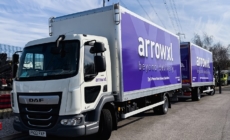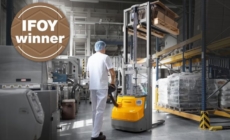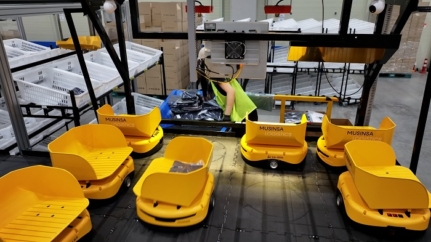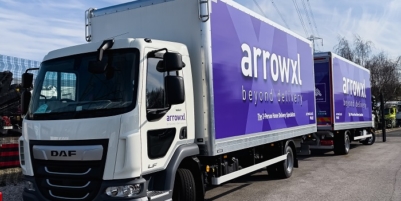-
ROSSLARE EUROPORT TARGETS HEALTH & SAFETY WITH CAMERA TELEMATICS PARTNERSHIP - 2 days ago
-
Landmark Study Reveals Wearable Robotics Significantly Boost Safety and Efficiency in Industrial Environments - July 24, 2024
-
Visku Tackle The Retail Seasonality Challenge One Pallet At A Time - July 22, 2024
-
KAMMAC AND BERGEN LOGISTICS STRENGTHEN FASHION & LIFESTYLE SERVICES IN THE UK - July 19, 2024
-
TENTBOX EXTENDS PARTNERSHIP WITH ARROWXL TO SUPPORT INCREASING DEMAND - July 17, 2024
-
The Perfume Shop improves customer journeys while driving profitability in partnership with Scurri - July 17, 2024
-
ZEROMISSION SECURES £2.3M ($3M) INVESTMENT TO ACCELERATE ELECTRIC FLEETS - July 16, 2024
-
BCMPA CELEBRATES SUCCESS OF 2024 CONFERENCE - July 15, 2024
-
Best of the Best: Jungheinrich Celebrates Triple International Award Win - July 12, 2024
-
GOPLASTICPALLETS.COM CALLS ON NEW CHANCELLOR RACHEL REEVES TO CONSIDER PLASTIC PACKAGING TAX REFORM - July 10, 2024
South Korea’s leading online fashion platform, Musinsa, has reduced the workforce at its national fulfilment centre by one third and made the order sorting process three-times more efficient with the introduction of a LiBiao 3D sorting platform featuring autonomous mobile robot (AMR) technology.
Covering a total area of 500 square metres, the split-level 3D sorting platform is the largest installation of its kind in South Korea. It features a total of 100 AMRs – with 50 robots in operation on both the top and bottom levels of the system which processes orders for Musinsa’s customers across South Korea.
In simple terms the double-level sorting system performs much like a tilt-tray or cross-belt conveyor, but the robots travel independently and do not require a fixed track. The bots use algorithms to choose the shortest and, therefore quickest, route to the required chute or induction point.
At an induction station a worker places an item onto a sorting robot and the robot begins moving to its predetermined destination. When it arrives at its destination the robot automatically tips the parcel into the required chute before returning to the feeding point to begin the process again.
To cope with any spikes in throughput at Musinsa’s fulfilment facility the number of robots in operation on both levels can be increased as required, but if all 100 robots were in operation continuously for 24 hours the system could process up to 80,000 parcels.
The ultra-space-efficient 3D platform occupies less than half of the floor area that a traditional sorting method would require and took just four weeks to install.
In addition to the savings Musinsa was able to make by reducing its workforce, the switch to AMR-based 3D sortation technology has cut the site’s overall running costs, with energy consumption significantly down since the system was introduced. The savings are such that Musinsa expects to see a return on its investment within two years.
Musinsa was formed in 2001 and launched its ecommerce operation in 2009. It is one of the world’s fastest growing fashion retailers. In 2023 the company expanded into 13 new markets with the brand’s first Tokyo store attracting more than 10,000 shoppers in the first three days of its opening and Musinsa recently announced plans to expand its US operation.
LiBiao’s international client base continues to grow, and the company’s AMR sortation technology is in operation at sites across the world supported by a network of authorised dealers. Globally, an estimated 30 billion parcels are processed using LiBiao AMRs each year.

































